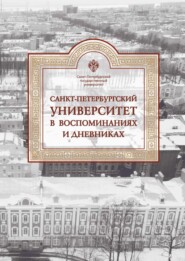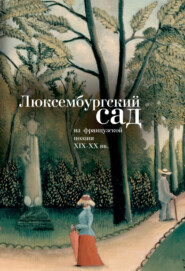По всем вопросам обращайтесь на: info@litportal.ru
(©) 2003-2024.
✖
Literary and Philosophical Essays: French, German and Italian
Настройки чтения
Размер шрифта
Высота строк
Поля
When travelling in that second fatherland of all poetic souls – Italy – the poets still pursued divergent routes; the one experienced sensations; the other emotions; the one occupied himself especially with nature; the other with the greatness dead, the living wrongs, the human memories. [Footnote: The contrast between the two poets is nowhere more strikingly displayed than by the manner in which they were affected by the sight of Rome. In Goethe's Elegies and in his Travels in Italy we find the impressions of the artist only. He did not understand Rome. The eternal synthesis that, from the heights of the Capitol and St. Peter, is gradually unfolded in ever-widening circles, embracing first a nation and then Europe, as it will ultimately embrace humanity, remained unrevealed to him; he saw only the inner circle of paganism; the least prolific, as well as least indigenous. One might fancy that he caught a glimpse of it for an instant, when he wrote: "History is read here far otherwise than in any other spot in the universe; elsewhere we read it from without to within; here one seems to read it from within to without; "but if so, he soon lost sight of it again, and became absorbed in external nature." Whether we halt or advance, we discover a landscape ever renewing itself in a thousand fashions. We have palaces and ruins; gardens and solitudes: the horizon lengthens in the distance, or suddenly contracts; huts and stables, columns and triumphal arches, all lie pell-mell, and often so close that we might find room for all on the same sheet of paper."
At Rome Byron forgot passions, sorrows, his own individuality, all, in the presence of a great idea; witness this utterance of a soul born for devotedhess: —
"O Rome! my country! city of the soul!
The orphans of the heart must turn to thee,
Lone mother of dead empires! and control
In their shut breasts their petty misery."
When at last he came to a recollection of himself and his position, it was with a hope for the world (stanza 98) and a pardon for his enemies. From the fourth canto of Childe Harold, the daughter of Byron might learn more of the true spirit of her father than from all the reports she may have heard, and all the many volumes that have been written upon him.]
And yet, notwithstanding all the contrasts, which I have only hinted at, but which might be far more elaborately displayed by extracts from their works; they arrived – Goethe, the poet of individuality in its objective life – at the egotism of indifference; Byron – the poet of individuality an its subjective life – at the egotism (I say it with regret, but it, too, is egotism) of despair: a double sentence upon the epoch which it was their mission to represent and to close!
Both of them – I am not speaking of their purely literary merits, incontestable and universally acknowledged – the one by the spirit of resistance that breathes through all his creations; the other by the spirit of sceptical irony that pervades his works, and by the independent sovereignty attributed to art over all social relations-greatly aided the cause of intellectual emancipation, and awakened in men's minds the sentiment of liberty. Both of them – the one, directly, by the implacable war he waged against the vices and absurdities of the privileged classes, and indirectly, by investing his heroes with all the most brilliant qualities of the despot, and then dashing them to pieces as if in anger; – the other, by the poetic rehabilitation of forms the most modest, and objects the most insignificant, as well as by the importance attributed to details – combated aristocratic prejudices, and developed in men's minds the sentiment of equality. And having by their artistic excellence exhausted both forms of the poetry of individuality, they have completed the cycle cf its poets; thereby reducing all followers in the same sphere to the subaltern position of imitators, and creating the necessity of a new order of poetry; teaching us to recognize a want where before we felt only a desire. Together they have laid an era in the tomb; covering it with a pall that none may lift; and, as if to proclaim its death to the young generation, the poetry of Goethe has written its history, while that of Byron has graven its epitaph.
And now farewell to Goethe; farewell to Byron! farewell to the sorrows that crush but sanctify not – to the poetic flame that illumines but warms not – to the ironical philosophy that dissects without reconstructing – to all poetry which, in an age where there is so much to do, teaches us inactive contemplation; or which, in a world where there is so much need of devotedness, would instil despair. Farewell to all types of power without an aim; to all personifications of the solitary individuality which seeks an aim to find it not, and knows not how to apply the life stirring within it; to all egotistic joys and griefs:
"Bastards of the soul;
O'erweening slips of idleness: weeds – no more-
Self-springing here and there from the rank soil;
O'erflowings of the lust of that same mind
Whose proper issue and determinate end,
When wedded to the love of things divine,
Is peace, complacency, and happiness."
Farewell, a long farewell to the past! The dawn of the future is announced to such as can read its signs, and we owe ourselves wholly to it.
The duality of the Middle Ages, after having struggled for centuries under the banners of emperor and pope; after having left its trace and borne its fruit in every branch of intellectual development; has reascended to heaven – its mission accomplished – in the twin flames of poesy called Goethe and Byron. Two hitherto distinct formulae of life became incarnate in these two men. Byron is isolated man, representing only the internal aspect of life; Goethe isolated man, representing only the external.
Higher than these two incomplete existences; at the point of intersection between the two aspirations towards a heaven they were unable to reach, will be revealed the poetry of the future; of humanity; potent in new harmony, unity, and life.
But because, in our own day, we are beginning, though vaguely, to foresee this new social poetry, which will soothe the suffering soul by teaching it to rise towards God through humanity; because we now stand on the threshold of a new epoch, which, but for them, we should not have reached; shall we decry those who were unable to do more for us than cast their giant forms into the gulf that held us all doubting and dismayed on the other side? From the earliest times has genius been made the scapegoat of the generations. Society has never lacked men who have contented themselves with reproaching the Chattertons of their day with not being patterns of self-devotion, instead of physical or moral suicides; without ever asking themselves whether they had, during their lifetime, endeavored to place aught within the reach of such but doubt and destitution. I feel the necessity of protesting earnestly against the reaction set on foot by certain thinkers against the mighty-souled, which serves as a cloak for the cavilling spirit of mediocrity. There is something hard, repulsive, and ungrateful in the destructive instinct which so often forgets what has been done by the great men who preceded us, to demand of them merely an account of what more might have been done. Is the pillow of scepticism so soft to genius as to justify the conclusion that it is from egotism only that at times it rests its fevered brow thereon? Are we so free from the evil reflected in their verse as to have a right to condemn their memory? That evil was not introduced into the world by them. They saw it, felt it, respired it; it was around, about, on every side of them, and they were its greatest victims. How could they avoid reproducing it in their works? It is not by deposing Goethe or Byron that we shall destroy either sceptical or anarchical indifference amongst us. It is by becoming believers and organizers ourselves. If we are such, we need fear nothing. As is the public, so will be the poet. If we revere enthusiasm, the fatherland, and humanity; if our hearts are pure, and our souls steadfast and patient, the genius inspired to interpret our aspirations, and bear to heaven our ideas and our sufferings, will not be wanting. Let these statues stand. The noble monuments of feudal times create no desire to return to the days of selfdom.
But I shall be told, there are imitators. I know it too well; but what lasting influence can be exerted on social life by those who have no real life of their own? They will but flutter in the void, so long as void there be. On the day when the living shall arise to take the place of the dead, they will vanish like ghosts at cock- crow. Shall we never be sufficiently firm in our own faith to dare to show fitting reverence for the grand typical figures of an anterior age? It would be idle to speak of social art at all, or of the comprehension of humanity, if we could not raise altars to the new gods, without overthrowing the old. Those only should dare to utter the sacred name of progress, whose souls possess intelligence enough to comprehend the past, and whose hearts possess sufficient poetic religion to reverence its greatness. The temple of the true believer is not the chapel of a sect; it is a vast Pantheon, in which the glorious images of Goethe and Byron will hold their honored place, long after Goetheism and Byronism shall have ceased to be.
When, purified alike from imitation and distrust, men learn to pay righteous reverence to the mighty fallen, I know not whether Goethe will obtain more of their admiration as an artist, but I am certain that Byron will inspire them with more love, both as man and poet – a love increased even by the fact of the great injustice hitherto shown to him. While Goethe held himself aloof from us, and from the height of his Olympian calm seemed to smile with disdain at our desires, our struggles, and our sufferings – Byron wandered through the world, sad, gloomy, and unquiet; wounded, and bearing the arrow in the wound. Solitary and unfortunate in his infancy; unfortunate in his first love, and still more terribly so in his ill-advised marriage; attacked and calumniated both in his acts and intentions without inquiry or defence; harassed by pecuniary difficulties; forced to quit his country, home, and child; friendless – we have seen it too clearly since his death – pursued even on the Continent by a thousand absurd and infamous falsehoods, and by the cold malignity of a world that twisted even his sorrows into a crime; he yet, in the midst of inevitable reaction, preserved his love for his sister and his Ada; his compassion for misfortune; his fidelity to the affections of his childhood and youth, from Lord Clare to his old servant Murray, and his nurse Mary Gray. He was generous with his money to all whom he could help or serve, from his literary friends down to the wretched libeller Ashe. Though impelled by the temper of his genius, by the period in which he lived, and by that fatality of his mission to which I have alluded, towards a poetic individualism, the inevitable incompleteness of which I have endeavored to explain, he by no means set it up as a standard. That he presaged the future with the prevision of genius is proved by his definition of poetry in his journal – a definition hitherto misunderstood, but yet the best I know: "Poetry is the feeling of a former world and of a future." Poet as he was, he preferred activity for good, to all that his art could do. Surrounded by slaves and their oppressors; a traveller in countries where even remembrance seemed extinct; never did he desert the cause of the peoples; never was he false to human sympathies. A witness of the progress of the Restoration, and the triumph of the principles of the Holy Alliance, he never swerved from his courageous opposition; he preserved and publicly proclaimed his faith in the rights of the peoples and in the final
[Footnote:
Yet, Freedom! yet, thy banner torn, but flying,
Streams, like the thunder-storm, against the wind:
Thy trumpet voice, though broken now and dying,
The loudest still the tempest leaves behind.
The tree hath lost its blossomes, and the rind,
Chopped by the axe, looks rough and little worth,
But the sap lasts – and still the seed we find
Sown deep, even in the bosom of the North,
So shall a better spring less bitter fruit bring forth."]
triumph of liberty. The following passage from his journal is the very abstract of the law governing the efforts of the true party of progress at the present day: "Onwards! it is now the time to act; and what signifies self, if a single spark of that which would be worthy of the past [Footnote: Written in Italy.] can be bequeathed unquenchably to the future? It is not one man, nor a million, but the SPIRIT of liberty which must be spread. The waves which dash on the shore are, one by one, broken; but yet the OCEAN conquers nevertheless. It overwhelms the armada; it wears the rock; and if the Neptunians are to be believed, it has not only destroyed but made a world." At Naples, in the Romagna, wherever he saw a spark of noble life stirring, he was ready for any exertion; or danger, to blow it into a flame. He stigmatized baseness, hypocrisy, and injustice, whencesoever they sprang.
Thus lived Byron, ceaselessly tempest-tossed between the ills of the present and his yearnings after the future; often unequal; sometimes sceptical; but always suffering – often most so when he seemed to laugh;
[Footnote:
"And if I laugh at any mortal thing,
'Tis that I may not weep."]
and always loving, even
when he seemed to curse.
Never did "the eternal spirit of the chainless mind" make a brighter apparition amongst us. He seems at times a transformation of that immortal Prometheus, of whom he has written so nobly; whose cry of agony, yet of futurity, sounded above the cradle of the European world; and whose grand and mysterious form, transfigured by time, reappears from age to age, between the entombment of one epoch and the accession of another; to wail forth the lament of genius, tortured by the presentment of things it will not see realized in its time. Byron, too, had the "firm will" and the "deep sense;" he, too, made of his "death a victory." When he heard the cry of nationality and liberty burst forth in the land he had loved and sung in early youth, he broke his harp and set forth. While the CHRISTIAN Powers were protocolizing or worse – while the CHRISTIAN nations were doling forth the alms of a few piles of ball in aid of the CROSS struggling with the Crescent; he, the poet, and pretended sceptic, hastened to throw his fortune, his genius, and his life at the feet of the first people that had arisen in the name of the nationality and liberty he loved.
I know no more beautiful symbol of the future destiny and mission of art than the death of Byron in Greece. The holy alliance of poetry with the cause of the peoples; the union – still so rare – of thought and action – which alone completes the human Word, and is destined to emancipate the world; the grand solidarity of all nations in the conquest of the rights ordained by God for all his children, and in the accomplishment of that mission for which alone such rights exist – all that is now the religion and the hope of the party of progress throughout Europe, is gloriously typified in this image, which we, barbarians that we are, have already forgotten.
The day will come when democracy will remember all that it owes to Byron. England, too, will, I hope, one day remember the mission – so entirely English, yet hitherto overlooked by her – which Byron fulfilled on the Continent; the European role given by him to English literature, and the appreciation and sympathy for England which he awakened amongst us.
Before he came, all that was known of English literature was the French translation of Shakespeare, and the anathema hurled by Voltaire against the "intoxicated barbarian." It is since Byron that we Continentalists have learned to study Shakespeare and other English writers. From him dates the sympathy of all the true-hearted amongst us for this land of liberty, whose true vocation he so worthily represented among the oppressed. He led the genius of Britain on a pilgrimage throughout all Europe.
England will one day feel how ill it is – not for Byron but for herself – that the foreigner who lands upon her shores should search in vain in that temple which should be her national Pantheon, for the poet beloved and admired by all the nations of Europe, and for whose death Greece and Italy wept as it had been that of the noblest of their own sons.
In these few pages – unfortunately very hasty – my aim has been, not so much to criticise either Goethe or Byron, for which both time and space are wanting, as to suggest, and if possible lead, English criticism upon a broader, more impartial, and more useful path than the one generally followed. Certain travellers of the eleventh century relate that they saw at Teneriffe a prodigiously lofty tree, which, from its immense extent of foliage, collected all the vapors of the atmosphere; to discharge them, when its branches were shaken, in a shower of pure and refreshing water. Genius is like this tree, and the mission of criticism should be to shake the branches. At the present day it more resembles a savage striving to hew down the noble tree to the roots.

















